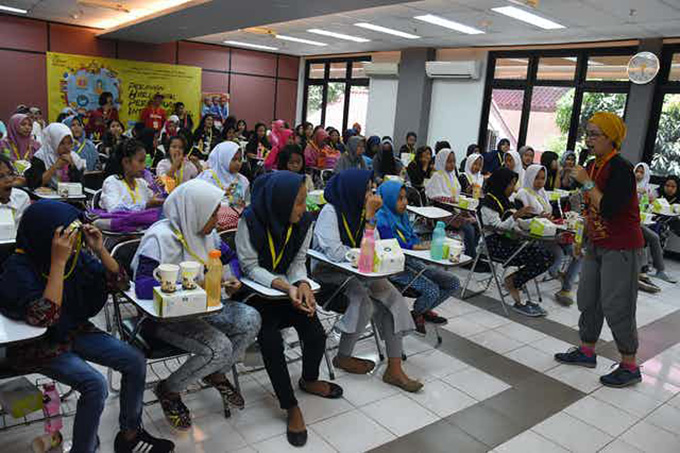
Masters and doctoral degrees can help advance careers and promote change in society , from protecting human rights, protecting the environment and gender equality to religious, racial and cultural solidarity.
However, female students who have children face special challenges when it comes to pursuing higher education.
Research conducted in the United Arab Emirates in 2017 explained that the dual roles of a mother and a student add complexity to studies because they have to ensure that their roles as parents, students, and even career women are balanced.
Our latest research last year confirmed these findings.
Our survey involved 406 mother-students pursuing postgraduate education (S2 and S3) both in Indonesia and abroad. We discovered the same challenges these women had to face. They have to carry out the role of a student as well as the main caregiver for the children as expected in society.
But our research also offers a solution.
Challenges for mother-students
The challenges faced by mother-students are very similar to those faced by female academics or female office workers .
These mother-students face highly time-consuming and labor-intensive academic tasks as well as the responsibility of caring for and raising children.
These tasks are even more challenging for those with out-of-town or overseas education that puts them away from the support system they have so far received. This support comes from the closest people such as spouse, parents, friends, or extended family members.
Lack of support can cause mental and physical exhaustion because women still have to face the hegemony of masculinity and patriarchy in the higher education system.
In a patriarchal system, female academics tend to face job discrimination, which places them in an unequal position with their male colleagues.
The need for affordable child care
Our research findings underscore the importance of a support system to assist mother-students pursuing postgraduate education.
Our respondents reported that their partner played a significant role in the success of their study. Their assistance may take the form of sharing childcare responsibilities or participating in relocation for further study.
However, not all mother-students are accompanied by their partners. So, they face the difficult choice of becoming single parents or separating from their family. Both options are not easy.
To overcome this problem, mother-students can take advantage of child care services or childcare .
However, these services tend to be very expensive, especially overseas. Child care costs can reach up to more than IDR 10 million per month.
Most of our respondents reported that they could not afford this fee because childcare costs were not included in the component of their scholarship allowance. As a result, most of the mother-students have to use personal savings funds or work part-time, because most of the respondents have family incomes below Rp 100 million per year.
Potential Solutions
Our research recommends an integrated approach involving universities, scholarship providers and study destinations to assist mother-students.
First, the destination campus needs to ensure mother-friendly campus policies and procedures.
For example, our respondents who study abroad reported that lecturers and supervisors were quite empathetic and understood the dual role of mother-students, but this is still considered rare in Indonesia.
The availability of affordable and adequate childcare facilities and mother and child friendly facilities on campus, especially in Indonesia, is also considered very minimal.
Second, scholarship providers need to take into account the cost component of childcare services as part of the special mother-student allowance. This is to ensure that the care needs of children who are often unaffordable are met.
Scholarship givers also need to extend the age limit in the process of applying for scholarships for women who experience career interruptions due to pregnancy and childbirth.
Third, the study destination country needs to identify the unique needs of mother-students, for example maternity leave and maternity leave.
Universities, scholarship providers, and the government of the study destination country also need to ensure that subsidies for childcare facilities can be obtained by all student mothers, regardless of the type of scholarship. Standard and inclusive policies need to be formulated to ensure cost reductions for child care, school and health services.
An integrated approach for mother-students is important to create equality in the realms of research, higher education and policy-making for female academics.
Author Bios: Fitri Hariana Oktaviani is a Lecturer and Researcher in Gender and Organizational Communication at the Universitas Brawijaya, Homeland is Assistant Professor in Organization Studies at the University of Indonesia and Nayunda Andhika Sari is Lecturer at the University of Indonesia and PhD candidate in Gender and Leadership at Monash University Australia
